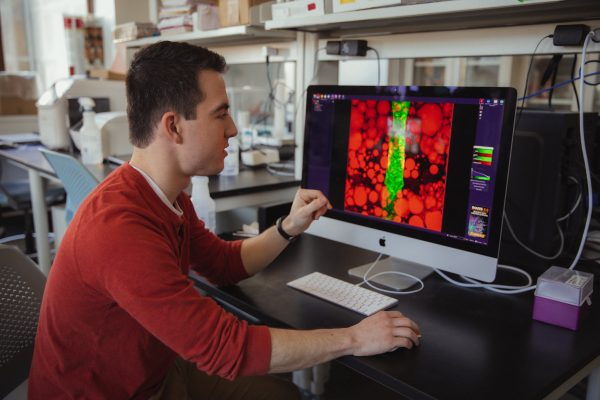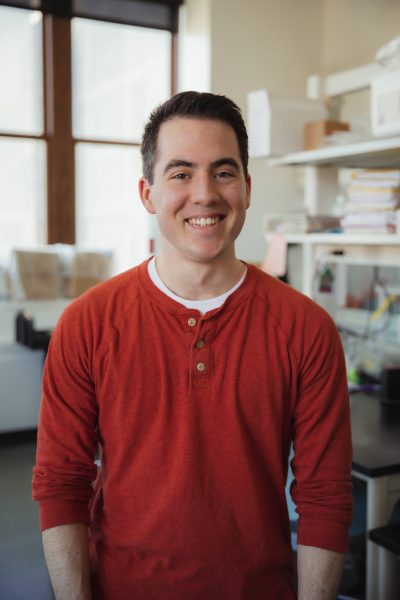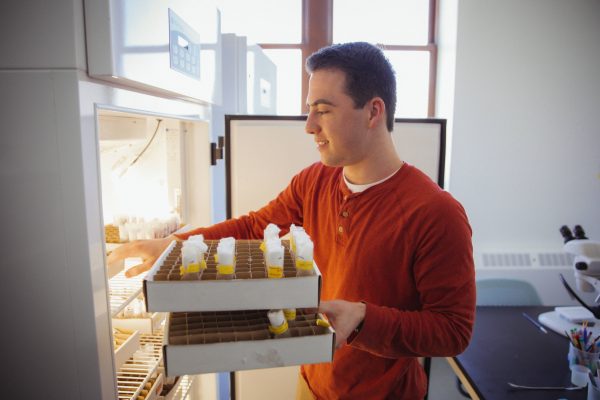A dose of compassion
Author: Stacey Maifeld
Author: Stacey Maifeld

While job shadowing at a hospital emergency room, Jackson Komp observed the complex needs of both patients and providers.
“I realized there is a shortage of compassion in health care for certain marginalized groups,” he said. “But part of that reason is people are tired and overworked, and it’s hard to nurture compassion when you’re not feeling well yourself.”
So, while preparing for medical school, Komp (’22 biochemistry, Spanish; ’23 M.S. biochemistry) has pursued classroom and community experiences at Iowa State that broadened his understanding of people, systems, and policy.
Komp’s first introduction to policy was through a Spanish course focusing on language, justice, and law. He decided to keep following his interests with further courses in global health disparities, U.S. public policy, and argumentation and debate. The latter class examined processes that communities can use to reach decisions on hard topics.

“We focused a lot on deliberation, how people can voice their opinions and then as a group work through what their different values are and how to make the best choice available,” he said.
Outside the classroom, Komp has studied abroad in Spain, is a resident of the Ames Romero House – a Catholic Worker community – and has served as a leader on the LAS Student Council. There, he helped LAS student organizations access important funding while also building community among campus leaders.
“We wanted a place where clubs could come and interact with other clubs to share resources and knowledge, especially with new clubs,” he said. “Having a place where people who’ve been doing it for a while can interact with people who are just starting out and providing those connections.”
Komp graduated from Iowa State in fall 2022. As he waits to start medical school next fall, Komp is also completing a master’s degree in biochemistry at Iowa State. His master’s thesis is an expansion of his Honors Program undergraduate research, where he studied microRNAs with Elizabeth McNeil, assistant professor of food science and human nutrition.
While every cell in your body has the same genetic code, a microRNA can act like a dial, turning down how much of a particular gene is expressed, Komp explained. Because fruit flies and humans share a significant number of genes, Komp has examined nearly 1,000 fruit fly hearts during the course of his research.

“What I look at is one specific microRNA and the impact that it has on heart tissue in fruit flies,” he said. “The microRNA I’m looking at is also present in humans. We are hoping that we’ll be able to translate some of the information that we learn from the fruit flies back to human health.”
Komp hopes to eventually practice in a field where he can get to know his patients well, such as psychiatry, addiction medicine, or palliative care. From the laboratory to life lessons, he’s eager to use all his experiences as a future physician.
“What excites me is medicine is changing,” Komp said. “Data is an important focus of medicine now, and I want to use data to improve human health without losing sight of the person who is right in front of me. I see that this change is possible, and I want to contribute to it.”